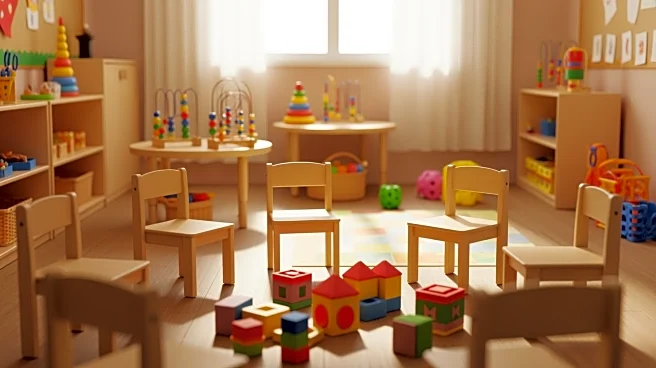What's Happening?
The ongoing government shutdown is causing significant disruptions to Head Start programs across the United States, with approximately 140 programs serving around 65,000 children at risk of closure. In
Wisconsin, the Southwestern Wisconsin Community Action Program is closing nine Head Start centers due to the lack of federal funding. These programs provide essential services such as early childhood education, health screenings, and nutrition to low-income families. The shutdown has already led to temporary layoffs of staff, including long-time educators like Stephanie Wallace, who had to bid farewell to her students. The closure of these centers is expected to have a profound impact on families who rely on them for safe child care, which in turn affects their ability to work.
Why It's Important?
The closure of Head Start programs due to the government shutdown highlights the broader implications of federal funding interruptions on vulnerable communities. These programs are vital for low-income families, providing not only educational support but also health and nutritional services. The shutdown exacerbates existing challenges faced by these families, such as food insecurity, especially as many also depend on SNAP benefits, which are also threatened by the funding lapse. The situation underscores the critical role of government-supported programs in maintaining community stability and supporting working families. The potential increase in hunger and economic strain on families could have long-term societal impacts.
What's Next?
As the government shutdown continues, the immediate future for Head Start programs remains uncertain. The Senate's inability to reach a consensus on funding has prolonged the shutdown, with no clear resolution in sight. The potential expiration of SNAP benefits adds another layer of urgency, as families brace for compounded hardships. Community organizations are stepping in to provide support, but the scale of need may exceed available resources. Political leaders face mounting pressure to resolve the impasse, with discussions around eliminating the filibuster rule to pass funding measures gaining traction. However, bipartisan agreement remains elusive.









